A Closer Look at Gloria Steinem's Early Life and Work
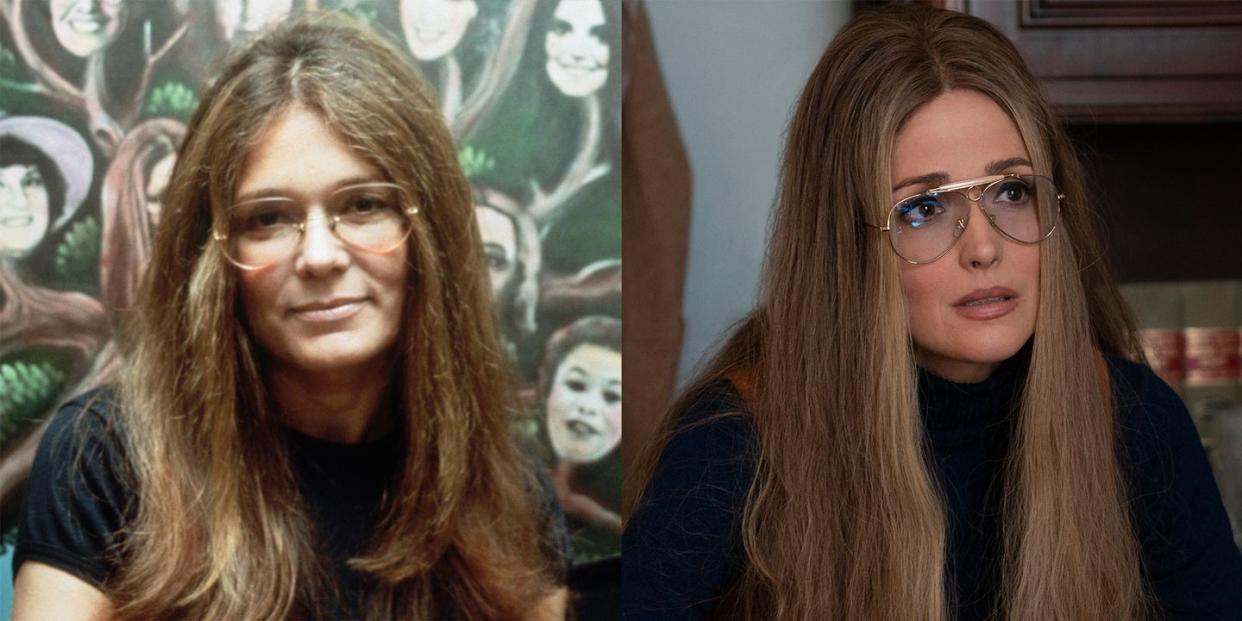
There's a reason you know the name Gloria Steinem. In the '60s and '70s, Steinem worked as an impassioned writer who fervently fought to give women their due by publishing scalding exposés and essays on the female condition. Her critical work stamped out a place for herself in the wide-scale feminist movement.
Now, in Hulu's miniseries, Mrs. America, actress Rose Byrne will portray the famous journalist during a time when she and other activists fought for the passage of the 1972 Equal Rights Act. Read on to learn more about Steinem's lifework and accomplishments, and tune in to the premiere of Mrs. America on April 15.
1 | Her relationship with her mother greatly influenced her future social views.
Before Steinem began analyzing the world through a feminist lens, she first became a witness to the way society treated her mother. Ruth Steinem had a mental illness and had suffered a few mental breakdowns before her daughter was born, according to National Geographic. After the family patriarch, Leo Steinem, left the family, Ruth struggled with her mental health and medical care. Seeing doctors dismiss her mother was one of the first concrete ways Steinem realized the anti-woman bias that infiltrated every aspect of society. According to The New York Times, Gloria Steinem's 1983 essay "Ruth's Song (Because She Could Not Sing It)" links her own feminism to her mother's life.
2 | Her first serious assignment as a writer was a piece about contraception for Esquire.
Titled "The Moral Disarmament of Betty Coed," Steinem's 1962 article explored the shifting sexual attitudes among college students in the age of the then-relatively new birth control pill.
"There are many who trace much of their own and women’s unhappiness to an abandoning of traditional roles; for these, women’s sexual freedom is a frightening development difficult to accept," Steinem wrote. "The real danger of the contraceptive revolution may be the acceleration of woman’s role-change without any corresponding change of man’s attitude toward her role."
She would go on to be a leading voice in the movement for reproductive rights.
3 | She went undercover as a Playboy Bunny to write an exposé about the abuses of the New York Playboy Club.
Her next big break as a writer came in 1963, when her exposé on Hugh Hefner's Playboy Club in New York was published by Show magazine. For "A Bunny's Tale," Steinem went undercover, disguising herself as a Bunny and working at the club as a cocktail waitress to get a firsthand account of the exploitation and misogyny that wreaked havoc inside.
The essay soon came to be one of her most well-known and groundbreaking works.
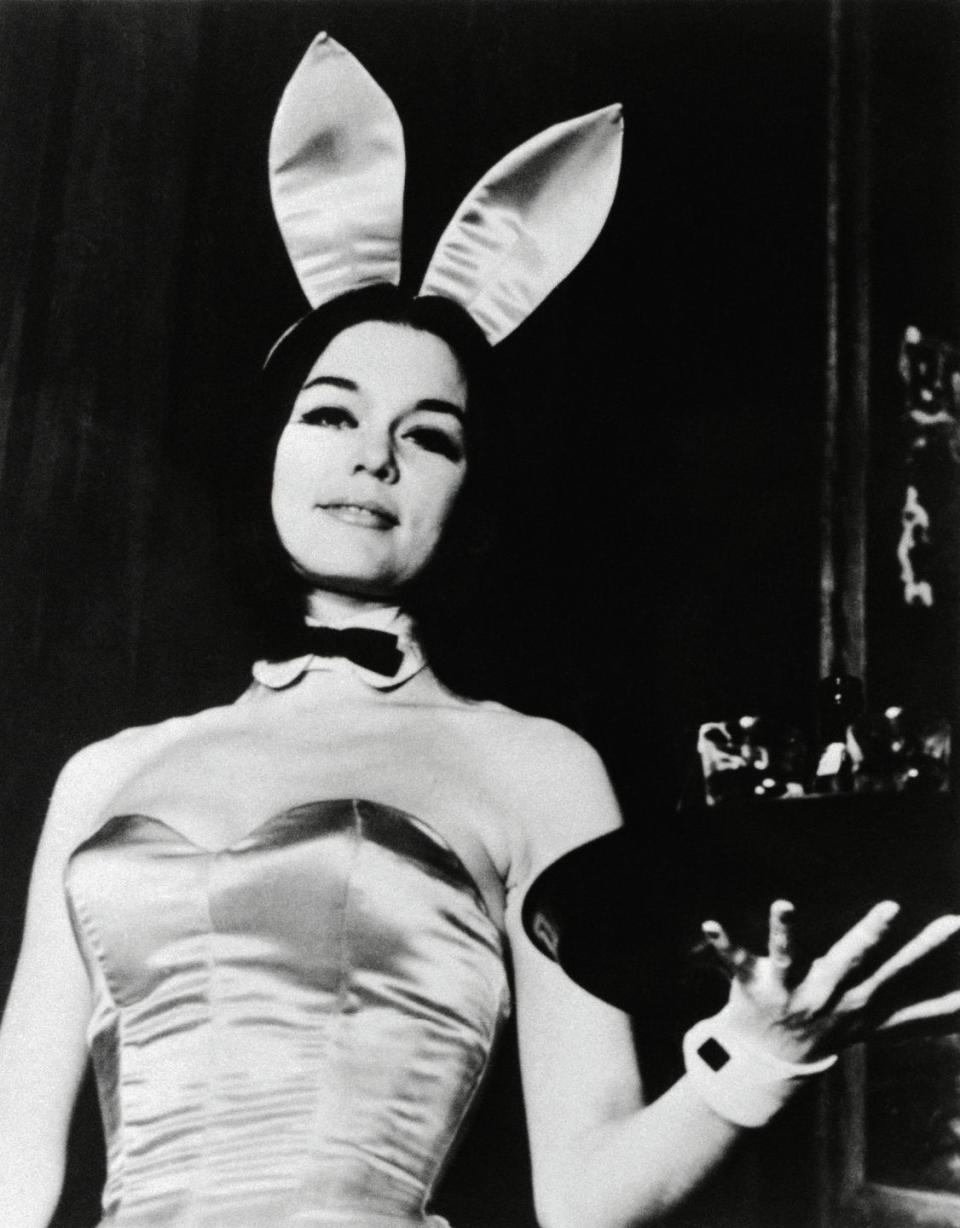
4 | She cofounded Ms. Magazine with Dorothy Pitman Hughes.
Steinem and Hughes, a fellow activist, founded feminist publication Ms. Magazine in 1971. What started as a sample insert in New York Magazine would quickly become a long-standing pillar in feminist circles, selling out of its first 300,000 "test" copies in just more than a week and continuing publication to this day.
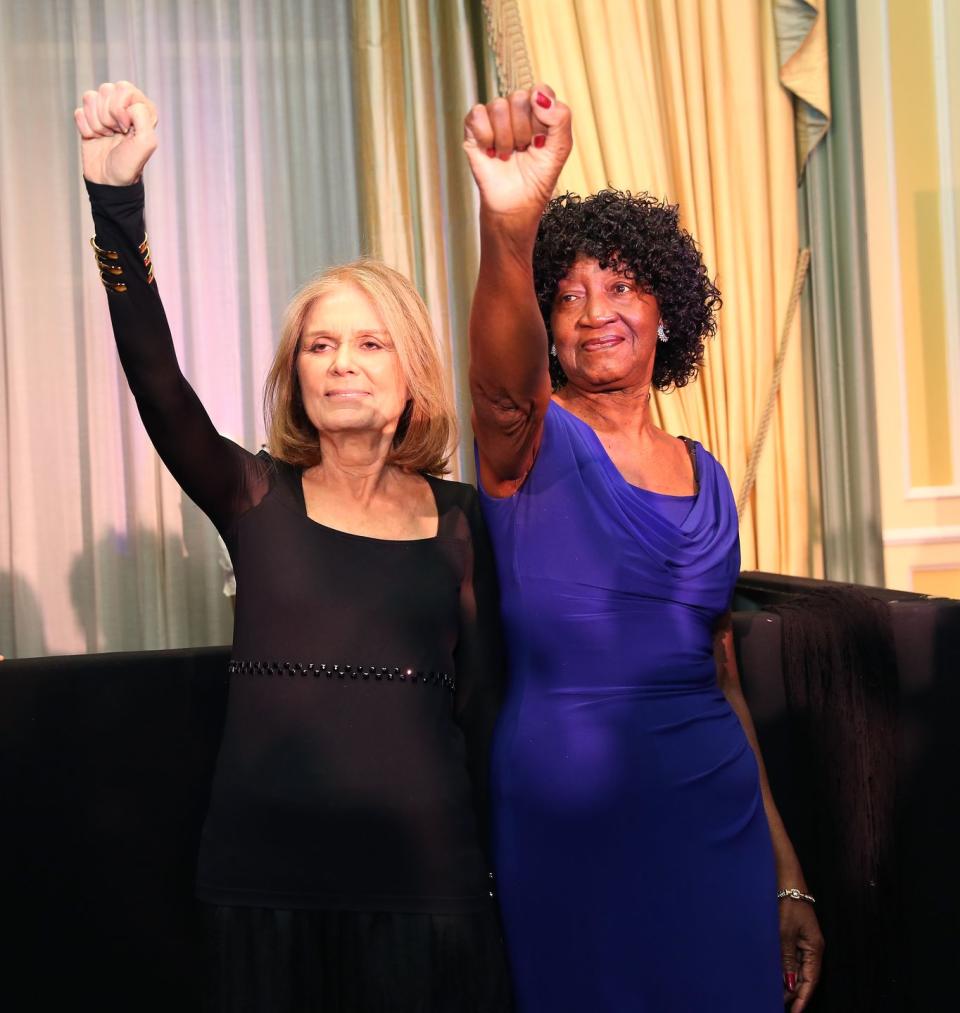
5 | Her "After Black Power, Women's Liberation" article propelled her to national feminist acclaim.
In 1969, Steinem's "After Black Power, Women's Liberation" essay cemented her status as one of the leaders of the feminist movement. A treatise on feminist organizing published by New York Magazine, the writer argued that "in the long run, … women's liberation will be men's liberation, too."
6 | She campaigned for the Equal Rights Amendment.
The Equal Rights Amendment of the '70s was intended to instate legal equality of the sexes and to prohibit discrimination based on gender. Though the Senate passed the historic amendment, the minimum number of states failed to ratify it after conservative backlash, which is the focus of Mrs. America.
In her testimony to the Senate in 1970, Steinem argued for its passage, saying in part, "The truth is that all our problems stem from the same sex based myths. We may appear before you as white radicals or the middle-aged middleclass or black soul sisters, but we are all sisters in fighting against these outdated myths."
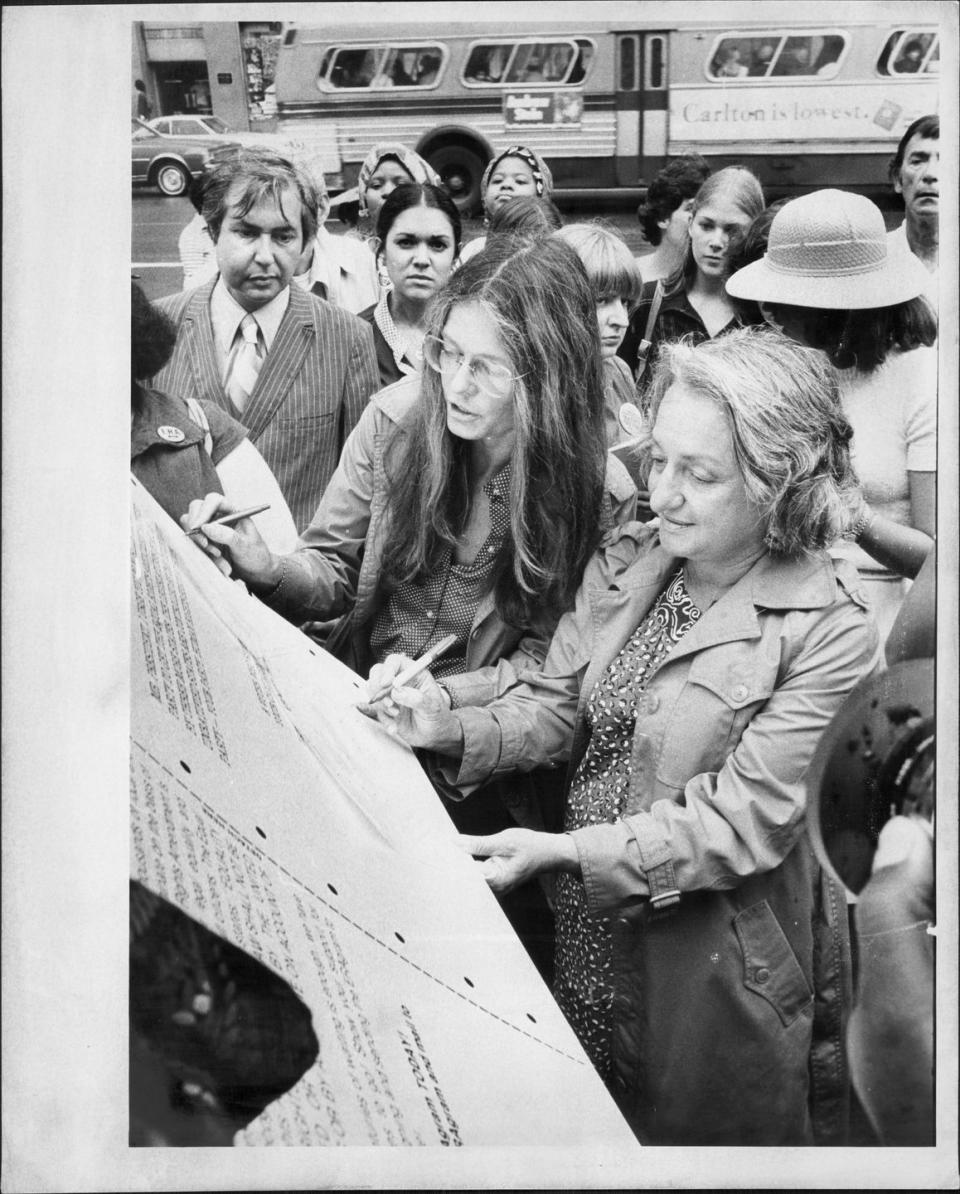
7 | She was one of the founding members of the National Women's Political Caucus.
Along with other famous feminists like Shirley Chisholm, Betty Friedan, and Bella Abzug, Steinem joined in on the 1971 founding of the National Women's Political Caucus. The organization works to recruit, train, and elect women at every level of government.
8 | She had an illegal abortion in her early 20s.
Steinem is a known supporter of reproductive freedom, but the issue also hits close to home. She became pregnant at the age of 22 and sought out an abortion in London in 1957, before it was legal in England. She became inspired to talk about her experience years later while attending an abortion speak-out as a reporter for New York magazine, but she opened up about the event in detail in 2015 during an NPR interview with Terry Gross.
“I had been doing all of the foolish things that we then did [to terminate a pregnancy], like riding horseback, throwing ourselves down stairs. ... I am the most cowardly person you can imagine, physically speaking, but I did [throw myself down stairs]. ... I was desperate. I really was desperate. I just knew that if I went home and married, which I would've had to do, it would be to the wrong person; it would be to a life that wasn't mine, that wasn't mine at all.”
Steinem also dedicated her book, My Life on the Road, to the doctor who performed her abortion, Dr. John Sharpe. Although it was published long after his death, the author’s dedication recalled what he told her: “You must promise me two things. First, you will not tell anyone my name. Second, you will do what you want to do with your life.”
9 | She supported same-sex marriage as early as 1970.
Decades before it would be legalized, Steinem spoke candidly of her support of same-sex marriage. In the 1970 essay "What Would It Be Like If Women Win," published by TIME, Steinem wrote, "What will exist is a variety of alternative life-styles. Since the population explosion dictates that childbearing be kept to a minimum, parents-and-children will be only one of many 'families': couples, age groups, working groups, mixed communes, blood-related clans, class groups, creative groups. Single women will have the right to stay single without ridicule, without the attitudes now betrayed by 'spinster' and 'bachelor.' Lesbians or homosexuals will no longer be denied legally binding marriages, complete with mutual-support agreements and inheritance rights."
10 | She was criticized for working on contract with the CIA.
A report from Redstockings, a radical feminist group, found ties between the CIA and Steinem during a period in the late '50s and early '60s, when she headed the Independent Research Service, an organization that was receiving money from the governmental agency to send non-Communist Americans to the Soviet-sponsored Vienna Youth Festival. Steinem had previously spoken to The New York Times in 1967 about her CIA affiliation, nearly 10 years before the Redstockings report.
"Far from being shocked by this involvement, I was happy to find some liberals in government in those days who were far-sighted and cared enough to get Americans of all political views to the festival," Steinem said then.
She also defended her position to The Washington Post, "In my experience the agency was completely different from its image: it was liberal, nonviolent and honorable."
11 | She was the first woman to speak at the National Press Club.
While promoting Ms. Magazine, Steinem became the first woman to ever speak at an event held by the National Press Club, a professional organization for journalists that had then only recently admitted woman journalists. According to reports at the time, Steinem opened her speech with a criticism on media.
"The real nitty-gritty comes here, for both women and minority men," she said. "They are unlikely to be put in a position of authority over white men. How many women or Black city editors have you met?"
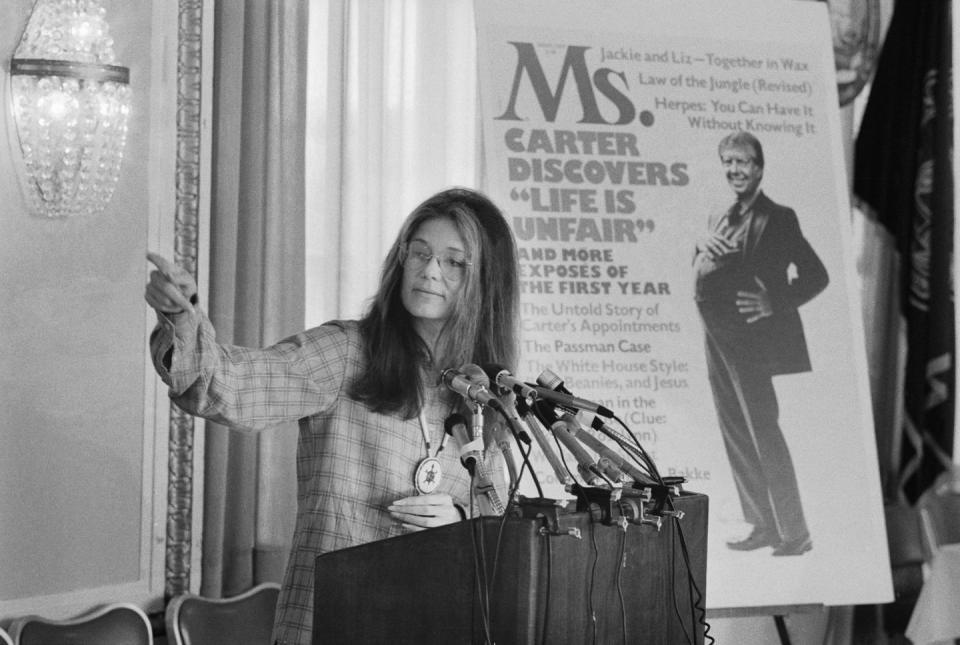
You Might Also Like

